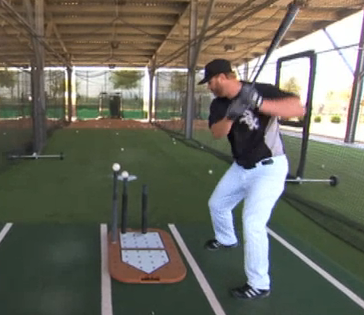|
Alone time for players
With practices starting up soon in many parts of the country, coaches are well into the process of designing practice routines and schedules for their teams. At least they should be. If you ever had the pleasure of participating in or watching spring training workouts for pro teams, you may have noticed that very often players will go to the cages to get extra hitting work in after team workouts are finished. It’s not unusual for the players to be by themselves when this happens. There is a lot of value in encouraging players to spend some time each day working on something by Below are ways that coaches can incorporate some alone time at practice to give players the freedom to work on the things they want to work on and some other explanations as to why it may be beneficial to the coach as well. Scheduling alone time for your players can be valuable It gives coaches some one-on-one time. When practices start, coaches don’t have a lot of one-on-one time with individual players because the entire team is on the field. Scheduling some alone time either before or after practice can allow the coach to pull a player or two off to the side and work specifically with them. Others players are free to work on other things. Coaches should be sure to not consistently pull aside the same players or they will be seen as playing favorites. It gives a coach a breather after work. Let’s face it. If you are a teacher and also a coach, you know how difficult it can be to finish up your teaching schedule, change “hats,” and rush out to the field in time to run an organized practice. It can be even tougher if a coach works away from the school at which he is coaching. Scheduling alone work at the beginning of practice gives coaches some leeway in case they are running late or just need a little downtime to transition from work to coaching. It gives the players a breather after a long school day. Adults are not the only ones who have hectic schedules and stress during the day. The structure of school is usually very restrictive on freedom. Bell schedules, class schedules, sitting still in a desk all day, and class work are all adult directed. Sometimes the last thing a student wants or needs is to go out on the field and immediately have more structured time directed by adults. Giving them some time at the beginning of practice where they have some choice gives them some time to unwind from their day as well before the organized routine starts up again. There are other ways this can be done but the main point is this. When players are given some choice in the work they do, they are often more motivated to get it done. Of course, you may get a kid who tries to goof off when you are not paying close attention but usually if you explain the value of this time to the players, they get on board rather quickly.
|
|
|




 themselves or with a teammate. Players, especially younger players, tend to behave differently when coaches are around. Often players will behave in ways to please the coach. This may make the coach happy but it doesn’t always help the player. A player may know that they really ought to work on opposite field hitting but may do a drill that their coach loves instead if the coach is near.
themselves or with a teammate. Players, especially younger players, tend to behave differently when coaches are around. Often players will behave in ways to please the coach. This may make the coach happy but it doesn’t always help the player. A player may know that they really ought to work on opposite field hitting but may do a drill that their coach loves instead if the coach is near.


